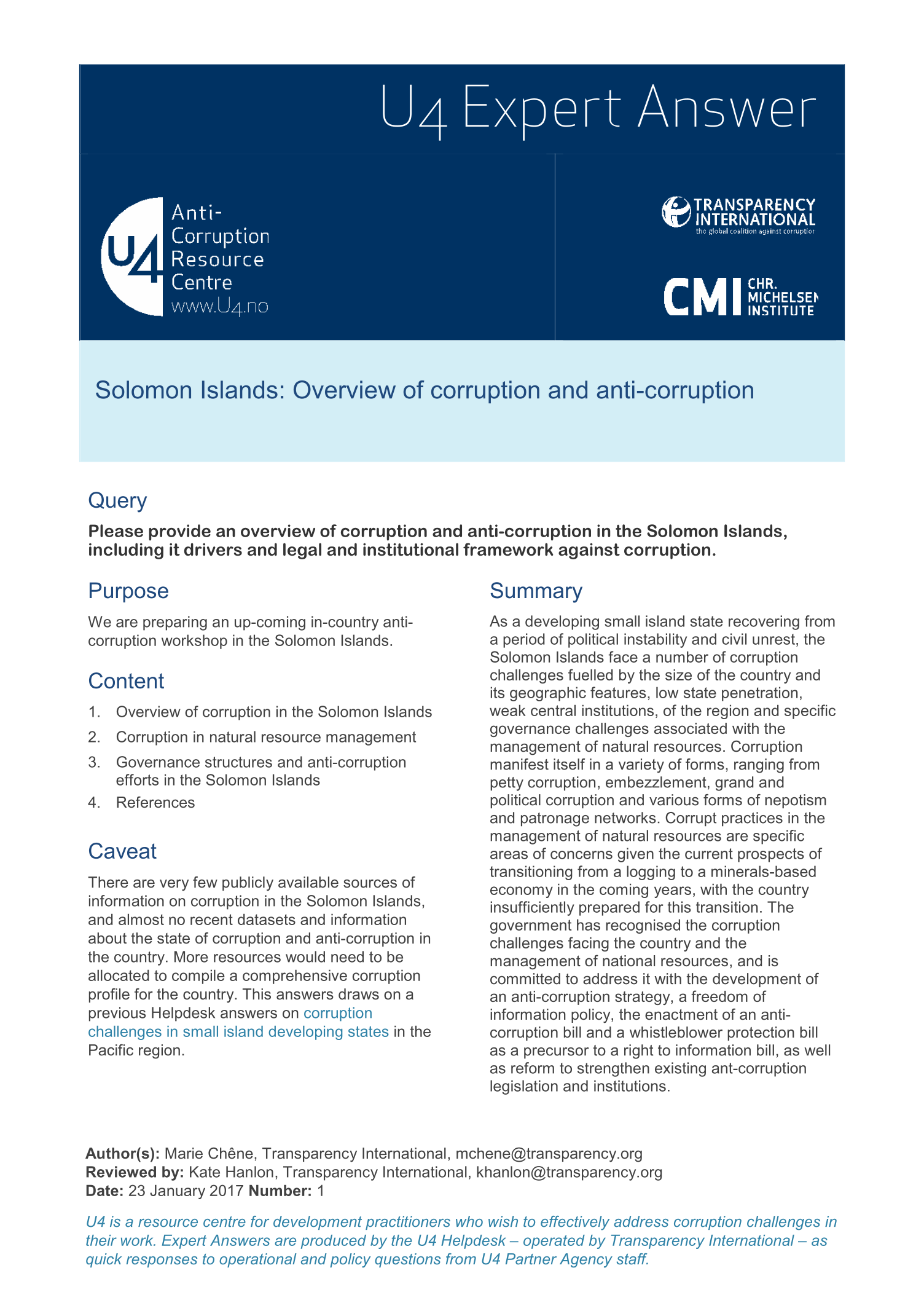U4 Helpdesk Answer
Solomon Islands: Overview of corruption and anti-corruption
As a developing small island state recovering from a period of political instability and civil unrest, the Solomon Islands face a number of corruption challenges fuelled by the size of the country and its geographic features, low state penetration, weak central institutions, of the region and specific governance challenges associated with the management of natural resources. Corruption manifest itself in a variety of forms, ranging from petty corruption, embezzlement, grand and political corruption and various forms of nepotism and patronage networks. Corrupt practices in the management of natural resources are specific areas of concerns given the current prospects of transitioning from a logging to a minerals-based economy in the coming years, with the country insufficiently prepared for this transition. The government has recognised the corruption challenges facing the country and the management of national resources, and is committed to address it with the development of an anti-corruption strategy, a freedom of information policy, the enactment of an anti-corruption bill and a whistleblower protection bill as a precursor to a right to information bill, as well as reform to strengthen existing anti-corruption legislation and institutions.

Cite this publication
Chêne, M. 2017. Solomon Islands: Overview of corruption and anti-corruption. Bergen: U4 Anti-Corruption Resource Centre, Chr. Michelsen Institute (U4 Helpdesk Answer 2017:1 )
Disclaimer
All views in this text are the author(s)’, and may differ from the U4 partner agencies’ policies.
This work is licenced under a Creative Commons Attribution-NonCommercial-NoDerivatives 4.0 International licence (CC BY-NC-ND 4.0)

